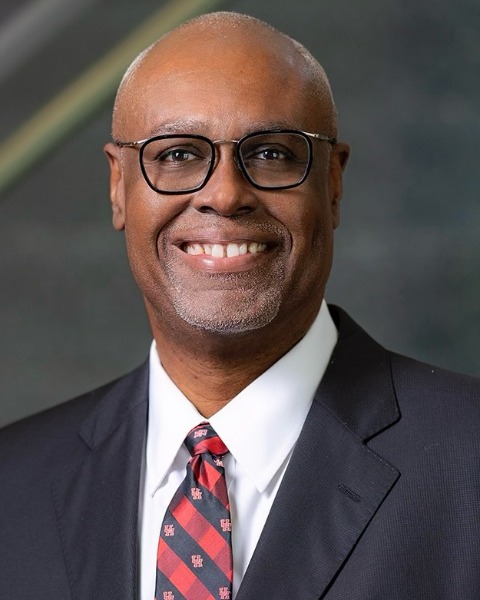Behavioral and Social Sciences
Black Men's Health and Aging Across the Life Course
-
RT
Roland Thorpe, Jr., ,PhD, FGSA (he/him/his)
Professor
Health, Behavior, and Society
Johns Hopkins University
Baltimore, Maryland, United States -
CH
Carl V. Hill, PhD, MPH (he/him/his)
Chief, Diversity, Equity and Inclusion
Diversity, Equity and Inclusion
Alzheimer's Association
Chicago, Illinois, United States -

Marino Bruce, PhD, MSRC, MDiv (he/him/his)
Founder, UHPH Collaboratories, UH Population Health Clinical Professor of Behavioral and Social Sciences
Behavioral and Social Sciences
University of Houston
Houston, Texas, United States -
.jpg)
Candi Nwakasi, PhD, MSPH (he/him/his)
Assistant Professor, Human Development and Family Sciences
Human Development and Family Sciences
University of Connecticut
Storrs, Connecticut, United States -

Darlingtina Esiaka, PhD, CPG, CPH (she/her/hers)
Assistant Professor
Center for Health Equity Transformation
University of Kentucky College of Medicine
University of Kentucky, Kentucky, United States
Chair(s)
Co-Chair(s)
Individual Symposium Abstract First Author(s)
Much of the research on Black men tend not to focus on concepts that have been found to be important determinants of health for Black men. Nor, do they seek to identify sources of resilience that may be protective of health. This symposium contains a collection of papers that discuss some key social determinants of health (SDOH) that can provide insights to advance our understanding of Black men’s health and aging. Bruce and colleagues examined the association between religious practices and/or beliefs, socioeconomic status, and cognitive status among Black men in the 2016 Health and Retirement Study (HRS). Findings indicate private prayer was inversely related to any cognitive impairment among Black men with more than 12 years of education. Nwaskasi and colleagues examined the effect of active coping and grit on subjective cognitive decline (SCD) among Black men and found that active coping and grit were significant predictors of SCD while controlling for demographic variables. Esiaka and colleagues investigated the relationship between food insecurity and cancer screening behaviors among Black men dwelling in food deserts. Understanding the link between food insecurity and cancer screening behavior provides crucial insights for tailoring targeted interventions for Black men. Thomas Tobin and colleagues investigated the link between psychosocial resilience and allostatic load in Black men in the Nashville Stress and Health Study. Results from latent class analyses suggest different resource combinations produce distinct patterns of resilience among Black men. These presentations will bolster our knowledge on SDOH among Black men across the life course.
Learning Objectives:
- Understand how social determinants of health influence Black men’s health across the life course
- Understand the association between psychosocial and behavioral factors and age-related outcomes in middle to late life Black men.
Presentations:
-
4:30 PM - 6:00 PM PSTReligion, Socioeconomic Heterogeneity, and Cognitive Status Among Black Men
Individual Symposium Abstract First Author: Marino A. Bruce, PhD, MSRC, MDiv (he/him/his) – University of Houston
-
4:30 PM - 6:00 PM PSTExamining the Association Between Active Coping, Grit, and Subjective Cognitive Decline in Aging Black American Men
Individual Symposium Abstract First Author: Candi Nwakasi, PhD, MSPH (he/him/his) – University of Connecticut
-
4:30 PM - 6:00 PM PSTFood Insecurity and Cancer Screening Behaviors Among Black Men Living in Food Deserts
Individual Symposium Abstract First Author: Darlingtina K. Esiaka, PhD, CPG, CPH (she/her/hers) – University of Kentucky College of Medicine
-
4:30 PM - 6:00 PM PSTWhen Resilience Becomes Risk: Psychosocial Resource Profiles and Allostatic Load Among African American Men
Individual Symposium Abstract First Author: Angela Gutierrez, PhD, MPH (she/her/hers) – Western University of Health Sciences
